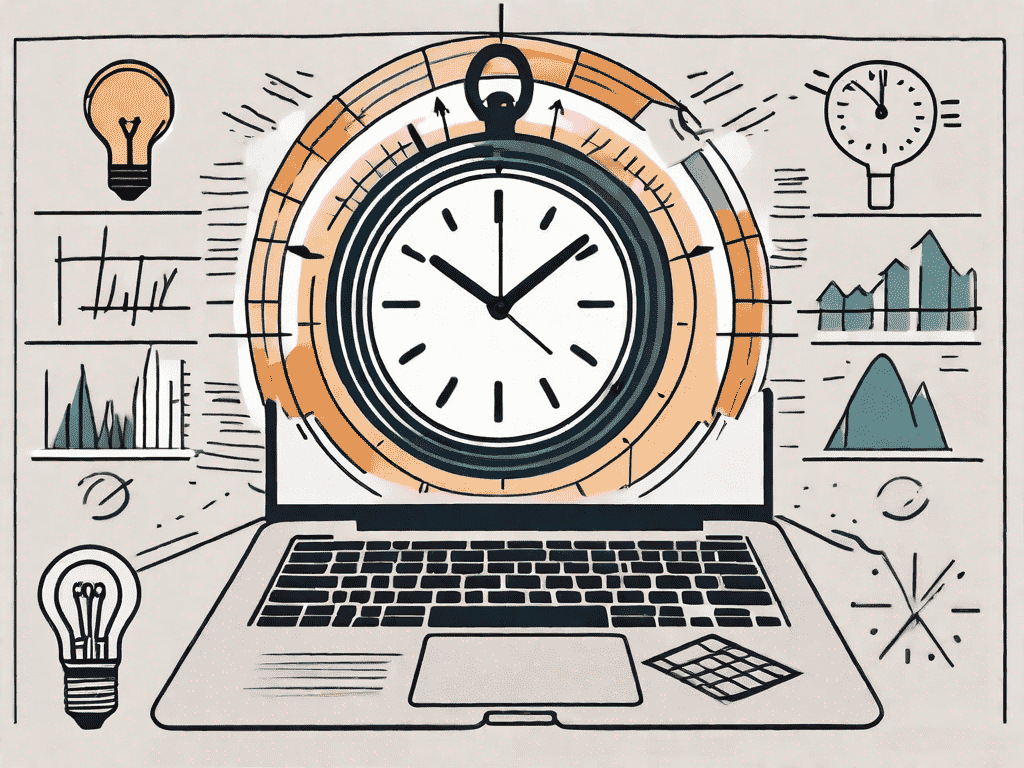
How to Increase Productivity? A Simplified Guide
Increasing productivity is a goal that many individuals strive to achieve. Whether you are looking to boost your personal efficiency or improve your performance in the professional realm, understanding the concept of productivity is crucial.
Understanding the Concept of Productivity
Productivity is a fundamental concept that plays a crucial role in both personal and professional life. It encompasses various aspects, including time management, task prioritization, and goal accomplishment. By understanding and harnessing the power of productivity, individuals can optimize their use of time and resources to achieve desired results.
In personal life, productivity refers to how efficiently one utilizes their time and resources to accomplish tasks and goals. It involves effective time management, setting priorities, and maintaining focus on important activities. By being productive, individuals can make the most of their talents and abilities, leading to a greater sense of fulfillment and accomplishment in their personal endeavors.
Similarly, in a professional context, productivity is of utmost importance. It directly impacts organizational success as efficient individuals and teams contribute to improved outcomes and profitability. Productive employees are able to manage their time effectively, prioritize tasks, and meet deadlines, resulting in increased efficiency and effectiveness in the workplace.
Defining Productivity in Personal and Professional Life
Productivity can be defined as the measure of how efficiently you use your time and resources to achieve desired results. It goes beyond simply being busy and encompasses the ability to focus on high-priority tasks, eliminate distractions, and make effective use of available resources.
In personal life, productivity involves managing various aspects such as household chores, personal projects, and self-improvement activities. It requires effective planning, setting realistic goals, and breaking tasks into manageable steps. By being productive in personal life, individuals can create a balanced and fulfilling lifestyle.
On the other hand, productivity in a professional setting involves optimizing work processes, collaborating effectively with colleagues, and delivering high-quality results. It requires individuals to prioritize tasks based on their importance and urgency, delegate responsibilities when necessary, and continuously seek ways to enhance productivity.
The Importance of Productivity
Productivity is essential for personal growth and success. By being productive, individuals can make the most of their time and talents, leading to a sense of fulfillment and accomplishment. It allows them to achieve their goals, both big and small, and create a meaningful and purposeful life.
In a professional setting, productivity is crucial for organizational success. Efficient individuals and teams contribute to improved outcomes, increased profitability, and a competitive advantage in the market. By optimizing productivity, organizations can streamline processes, reduce wastage of time and resources, and achieve their objectives in a timely and efficient manner.
Moreover, productivity fosters a positive work culture and enhances employee satisfaction. When individuals are able to manage their time effectively and accomplish their tasks, they experience a sense of achievement and fulfillment. This, in turn, boosts motivation, morale, and overall job satisfaction, leading to increased productivity at both the individual and organizational levels.
Identifying Productivity Killers
Common Distractions and How They Impact Productivity
In the digital age, distractions are abundant. From social media notifications to constant emails, these interruptions can significantly hinder productivity. It is essential to identify common distractions and develop strategies to minimize their impact. For instance, setting specific times for checking emails or utilizing productivity apps that block social media sites during focused work periods can help maintain focus.
One common distraction that many people face is the temptation to constantly check their smartphones. The constant buzzing and notifications can pull individuals away from their work and into a never-ending cycle of scrolling through social media feeds or responding to text messages. This constant need for instant gratification can lead to a decrease in productivity as it takes away valuable time that could be spent on important tasks.
Another distraction that impacts productivity is the open office environment. While open offices are designed to encourage collaboration and communication, they can also be a breeding ground for distractions. The constant noise and movement around the office can make it difficult for individuals to concentrate on their work. Additionally, the lack of privacy in an open office can lead to interruptions from colleagues, further disrupting productivity.
Furthermore, multitasking is often seen as a way to increase productivity, but it can actually have the opposite effect. When individuals try to juggle multiple tasks at once, their attention becomes divided, and they may not give each task the necessary focus and effort. This can result in subpar work and a decrease in overall productivity.
The Role of Stress and Burnout in Decreasing Productivity
Stress and burnout can have a detrimental effect on productivity. When overwhelmed by excessive workload, lack of rest, or prolonged stress, individuals may experience decreased concentration, motivation, and overall productivity. Recognizing the signs of stress and implementing stress-reducing techniques, such as meditation or exercise, can help prevent burnout and improve productivity.
One way that stress can impact productivity is through the phenomenon known as decision fatigue. When individuals are faced with a constant stream of decisions to make, their mental energy becomes depleted, making it harder for them to make effective choices. This can lead to procrastination, indecisiveness, and a decrease in productivity.
Another factor that contributes to decreased productivity is the lack of work-life balance. When individuals are constantly working and neglecting their personal lives, they are more likely to experience burnout. Burnout is characterized by exhaustion, cynicism, and a lack of motivation, all of which can significantly hinder productivity. It is important for individuals to prioritize self-care and set boundaries between work and personal life to maintain a healthy work-life balance.
In addition, the physical work environment can also play a role in stress and burnout. Poor lighting, uncomfortable furniture, and excessive noise can all contribute to increased stress levels and decreased productivity. Creating a comfortable and ergonomic workspace can help alleviate some of these stressors and improve overall productivity.
In conclusion, identifying and addressing common distractions, as well as understanding the impact of stress and burnout, are crucial steps in improving productivity. By implementing strategies to minimize distractions and promote well-being, individuals can optimize their focus, motivation, and overall productivity.
Strategies to Boost Productivity
Productivity is a key factor in achieving success and reaching our goals. Whether it’s at work, school, or in our personal lives, finding effective strategies to boost productivity such as offering employee incentives, can make a significant difference. In this article, we will explore some valuable techniques and habits that can help us optimize our productivity levels.
Time Management Techniques for Better Productivity
Effective time management is a fundamental aspect of productivity. It involves the ability to prioritize tasks, allocate time efficiently, and maintain focus. One popular technique that can aid in time management is the Pomodoro Technique. This method encourages individuals to work in short, focused bursts, typically 25 minutes, followed by a short break. By breaking tasks into smaller, manageable chunks, the Pomodoro Technique helps individuals maintain concentration and avoid burnout.
Another useful time management tool is the Eisenhower Matrix. This matrix categorizes tasks into four quadrants based on their urgency and importance. By identifying tasks that are both urgent and important, individuals can prioritize their workload effectively and ensure that critical tasks are completed in a timely manner.
In addition to these techniques, organizing your schedule and setting realistic deadlines can also help optimize productivity. By having a clear plan of action and breaking down tasks into smaller steps, you can stay on track and avoid feeling overwhelmed. Furthermore, setting realistic deadlines allows for better time allocation and reduces the likelihood of procrastination.
The Impact of a Healthy Lifestyle on Productivity
While time management techniques are crucial for productivity, it’s essential to recognize the role that a healthy lifestyle plays in optimizing our productivity levels. Taking care of our physical and mental well-being directly impacts our energy levels, cognitive abilities, and overall productivity.
Regular exercise is one of the key components of a healthy lifestyle that can significantly improve productivity. Engaging in physical activity releases endorphins, which are known as “feel-good” hormones. These endorphins help reduce stress, boost mood, and increase focus and concentration. Incorporating exercise into your daily routine, whether it’s through a gym session, a brisk walk, or a yoga class, can have a profound impact on your productivity levels.
In addition to exercise, balanced nutrition is another vital aspect of a healthy lifestyle that can enhance productivity. Consuming a well-rounded diet that includes a variety of fruits, vegetables, lean proteins, and whole grains provides our bodies with the necessary nutrients to function optimally. Proper nutrition fuels our brain, improves cognitive function, and helps us stay focused and alert throughout the day.
Furthermore, sufficient sleep is crucial for maintaining high levels of productivity. Research has consistently shown that lack of sleep can impair cognitive function, memory, and decision-making abilities. On the other hand, getting enough quality sleep allows our brains to recharge, enhances creativity, and improves problem-solving skills. Therefore, prioritizing sleep and establishing a consistent sleep routine can have a profound impact on our productivity levels , and prevent sleep deprivation symptoms.
Incorporating healthy habits into our daily routine is essential for optimizing productivity. By practicing effective time management techniques and leading a healthy lifestyle, we can enhance our focus, energy levels, and overall productivity. So, let’s start implementing these strategies and watch our productivity soar!
Implementing Productivity Tools and Technology
Overview of Popular Productivity Apps and Software
The digital age offers a plethora of productivity apps and software designed to streamline tasks, enhance collaboration, and aid in time management. Familiarizing yourself with popular productivity tools, such as project management software, note-taking apps, or time tracking platforms, can revolutionize your productivity workflow.
How to Choose the Right Productivity Tools for You
With numerous productivity tools available, it is essential to choose those that align with your specific needs and preferences. Consider factors such as ease of use, compatibility with your devices, and the features that are most beneficial to your workflow. Trial and error may be necessary to find the perfect productivity tools for your unique requirements.
Maintaining High Productivity Levels
The Role of Consistency and Routine in Sustaining Productivity
Consistency and routine play a significant role in sustaining productivity levels. By establishing a structured daily routine and maintaining consistency in practicing productivity habits, such as setting goals, using time-blocking techniques, and adhering to established schedules, you can cultivate a productive mindset and make productivity a natural part of your life.
Overcoming Productivity Slumps and Staying Motivated
Productivity slumps are inevitable, but they can be overcome. When facing a slump, it is crucial to evaluate the underlying causes and develop strategies to reignite motivation. This may involve setting smaller, achievable goals, seeking inspiration from others, or implementing new techniques to break the monotony and regain momentum.
Increasing productivity requires a holistic approach that encompasses various aspects of personal and professional life. By understanding the concept of productivity, identifying productivity killers, implementing effective strategies, and utilizing productivity tools, you can boost your efficiency and achieve optimal results. Remember, maintaining consistency and overcoming slumps are key elements in the journey towards sustained productivity.


